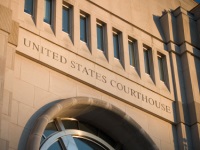Today, the Solicitor General filed a motion asking the Supreme Court to dismiss the Securities and Exchange Commission’s petition for a writ of certiorari in SEC v. Bartek. As noted in a previous blog post, the Bartek petition focused on when the limitations period under 28 U.S.C. § 2462 begins to accrues, a question that was answered in Gabelli.
However, the petition also presented a second question: whether director and officer bars and injunctive relief constituted penalties. Although the Supreme Court was unlikely to take up that question at this juncture, the government’s decision to dismiss the petition perhaps signals a view that Gabelli will not have a significant adverse impact on the SEC’s civil enforcement activities. Certainly, Gabelli’s impact can be minimized if, as expected, Mary Jo White is confirmed as the next SEC Chair and follows through on her commitment to the Senate Banking Committee to “aggressive” pursuit of wrongdoers.



